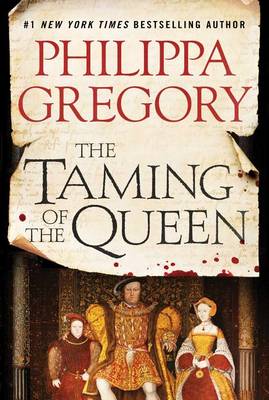
jesstheaudiobookworm
Written on Dec 3, 2016
Catherine Parr's story moved me in several different ways. Parr has been an unapproached figure in my own studies, so I have been anticipating this book for sometime. I think she is the most overlooked of Henry VIII's wives, even though she was the only one to have gotten away from him on her own terms. She was presented in The Taming of the Queen as a scholar and a free thinker. Her behind-the-scenes influence on England's religious reform was highlighted, as was Henry VIII's cruelty and demagoguery.
Phillippa Gregory has a knack for depicting tormentingly dynamic characters. The lines between good, bad, and downright evil are always blurred in her stories, as they are in life. In addition to all of the obstacles that come with fictionalizing historical figures, Gregory has an advantage over most fiction authors in that many of her characters are already real to the reader. Although, I'm certainly not taking anything away from Gregory's talent for bringing characters to life. She always enhances the multifaceted natures of those she depicts.
Henry VIII is a central figure in many of this series' installments. Readers have seen him transform from a gallant, dashing, egocentric young king (in The Other Boleyn Girl) to an abusive, tyrannical, egotistical senior king. Frankly, it was staggering to see his loathesome and revolting (albeit historically accurate) depiction in The Taming of the Queen. Such as depiction was so far from the Henry VIII I swooned over in The Other Boleyn Girl. The two installments are naturally bookends in this series. In The Other Boleyn Girl, Henry was depicted in a semi-positive light for most of the novel. He had flaws, to be sure. At times he was revolting and showed flashes of what he would become. In The Taming of the Queen, he was depicted in an extremely negative light for the majority of the novel, with only brief glimpses of his former generosity and pseudo-benevolence. Again, the progression was staggering and definitely hit where Gregory intended.
Much of this installment was focused around the topic of religion. It was a much more dominant theme than it has previously been, replacing the romance of installments past. Gregory's shaping of a literary world and ability to intertwine it with character development is one of her best qualities as a writer. She gives the reader a sense of the political climate and historical setting that is like a dense fog. It surrounds the reader from every angle and consumes completely.
I'm a few years removed from most of my previous experiences with Gregory's work, but I can't recall any of them being this violently graphic. Her work is always mature, but The Taming of the Queen detailed and emphasized many of the monstrous abuses Henry imposed on everyone around him. Several scenes made my stomach turn. I would not recommend The Taming of the Queen to anyone sensitive to graphic depictions of physical, sexual, or psychological abuse. But kudos to Gregory for having the nerve to include them. Because this is historical fiction, I do feel they were necessary and integral to accurately depict Henry's character and mentality. Nothing else could have been this effective.
Narration review: Bianca Amato delivered another commendable performance in The Taming of the Queen. This material did not offer her the same opportunities to exercise her wide array of talented accents as past titles have, but it was still a solidly enjoyable performance. Amato is an extremely consistent narrator. She can always be counted on to liven the written material, without overshadowing it. Her audible influences were subtle, but made an incredible difference to the overall listening experience. Congratulations on another beautiful performance of Gregory's work. ♣︎
